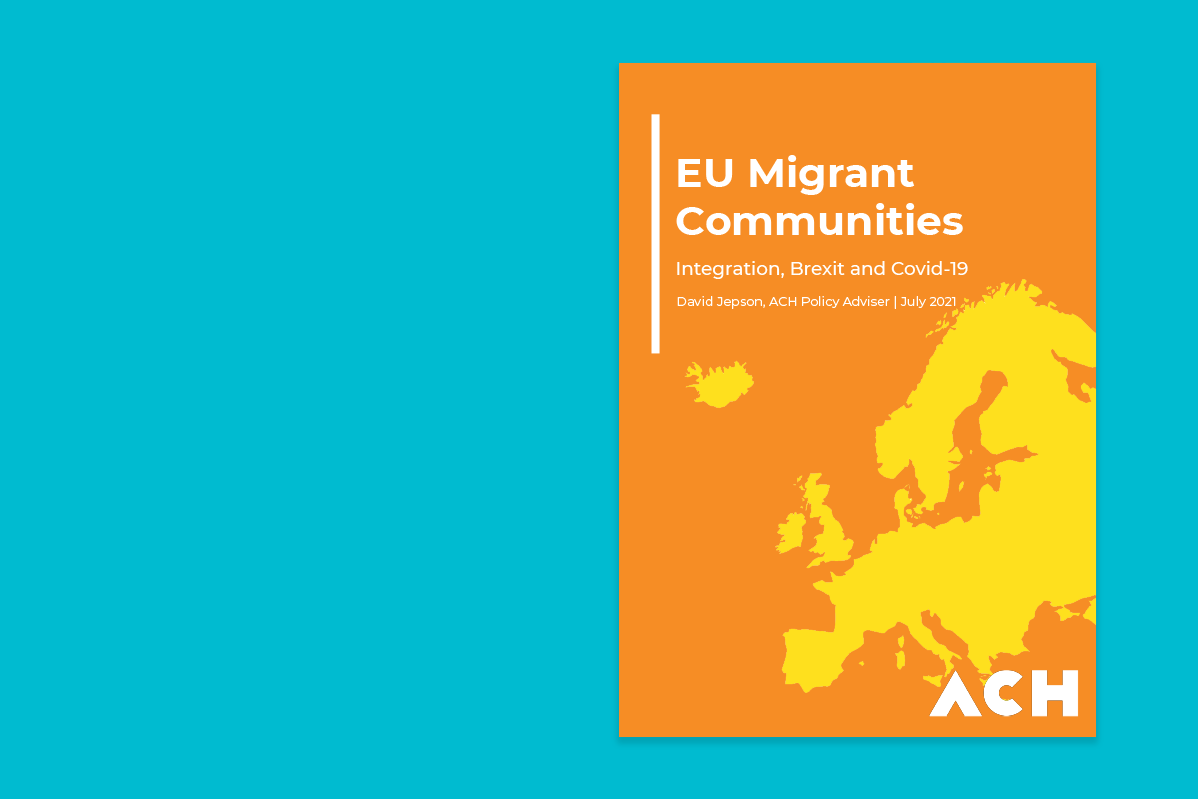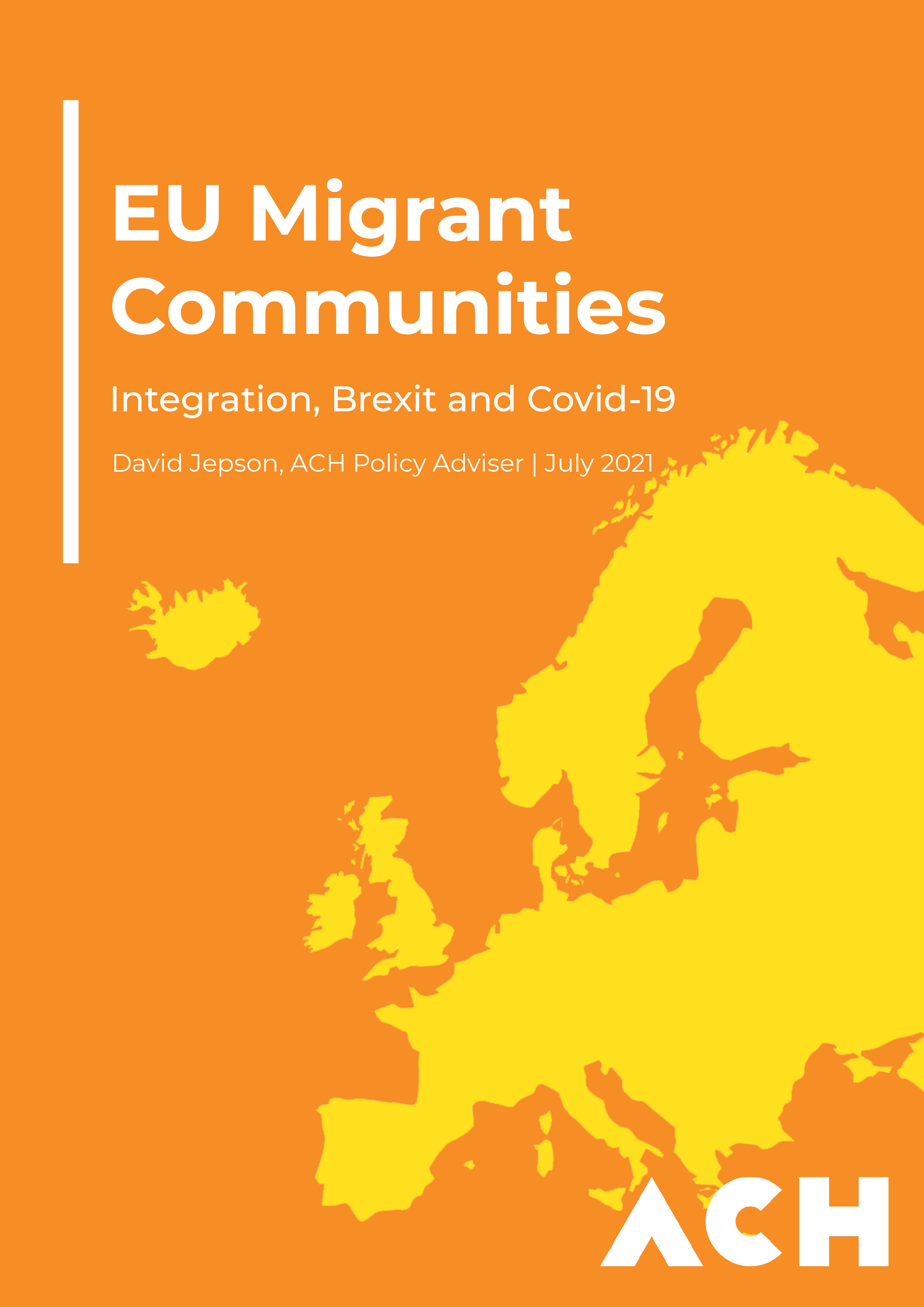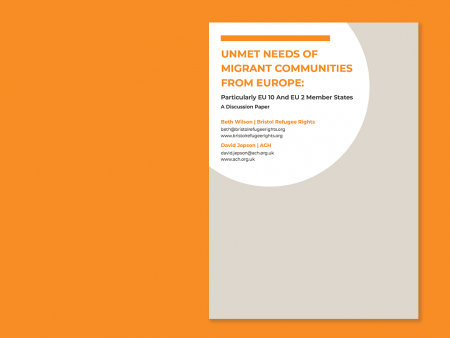
EU Migrant Communities: Integration, Brexit and Covid-19 | A report
Our Policy Adviser, David Jepson, has been working over the past few months on a Quartet Community Foundation funded project looking into the challenges faced by EU migrant communities in Bristol in the wake of Brexit and Covid-19.
Keep reading to find out the background and key findings of the resultant end of project report ‘EU Migrant Communities: Integration, Brexit and Covid-19’.
At ACH, we focus on building individuals’ resilience in the labour market, upskilling and supporting refugees and migrants into sustainable, higher-level employment to develop their independence and help their integration into life in the UK. Over the past few years, we have become concerned about the effect of Brexit and Covid-19 on EU migrant communities, who often fall through gaps in service provision for refugees and migrant communities.
Migration from Europe was placed at the centre of debates surrounding the UK’s exit from the EU in 2016. Five years later, the impact on EU communities has been profound. Furthermore, with the Covid-19 pandemic hitting all communities hard, EU migrant communities had covid-19 restrictions compounded with Brexit uncertainty and the EUSS deadline.
In this report, we highlight the vast contributions made by EU communities to our society, and investigate what specific services are needed to support EU migrants at this time:
‘These communities have made a very significant contribution to the local economy and the city. As a global city we should aim to motivate EU migrant communities to remain, feel welcome and prosper. What are the consequences and next steps for ensuring better integration for these communities? Whilst this situation reflects national level policy decisions, what can be done at local and regional level to mitigate this situation?’
We also look at the challenges to be overcome in order to provide tailored support and integration services for EU migrant communities facing specific problems. We identified three different challenges, including: the EUSS process and risk of No Recourse to Public Funds, labour market progression and economic opportunity and civic and community engagement.
We are especially concerned about the prospect of EU nationals at risk of a No Recourse to Public Funds stipulation attached to their immigration status. This was revealed by street sleeper counts during the Covid-19 lockdown, with around 40 people in this situation in Bristol. Many are only a couple of steps away from losing work, housing and access to other services.
The report highlights the need for employment support for individuals, tailored to help people reach their individual goals and potential. We note:
‘Often individuals are working at jobs well below their capability in relation to qualifications and experience. About 50% of highly educated workers born in new member states work in low skilled occupations and workers from these countries are more likely to be engaged in low skilled / entry level jobs than other population groups.’
Finally, we look at the impact on EU migrant communities rights in the aftermath of Brexit, as the proposed post-Brexit immigration system risks creating a tiered society, in which people are long term workers and tax payers, but yet exist with restricted rights and opportunities. We argue that:
‘This cannot be a sound basis for integration or inclusion which focuses on equal opportunities for all to fulfil their aspirations and to contribute to society. It risks creating permanent fractures in our localities.’
Read the full report here:


